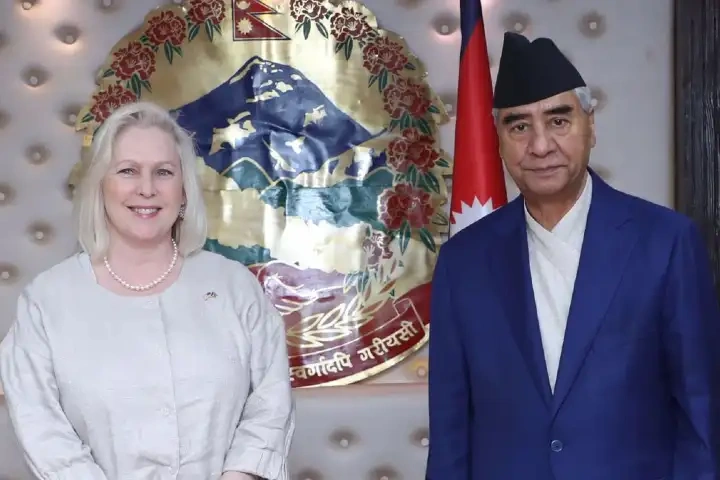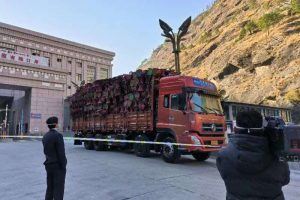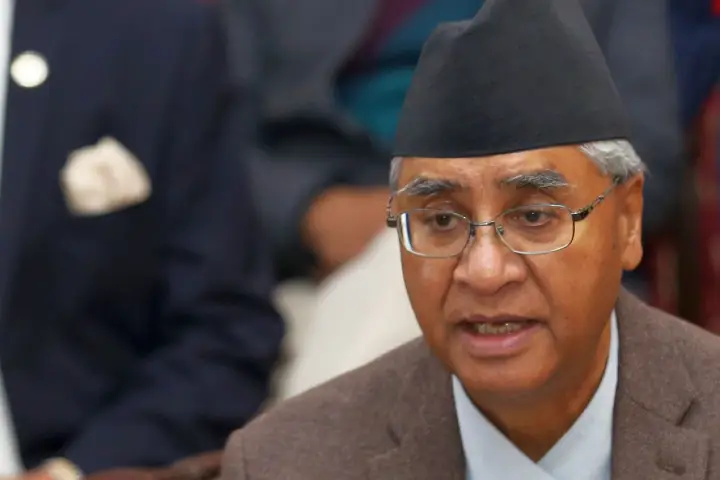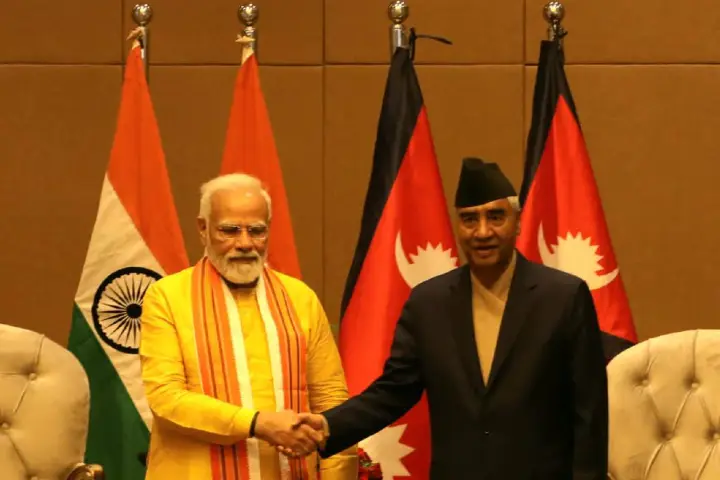Nepal and the US are celebrating the 75th anniversary of establishing diplomatic ties. For Nepal, it has been a positive celebration as the government cleared a $500 million grant from the US for projects related to power, infrastructure and spurring regional trade in South Asia.
In late February this year, the Nepalese parliament ratified the US government’s Millennium Challenge Corporation (MCC) grant after holding it in abeyance since September 2017. With strong lobbies within Nepali politics arrayed for and against the MCC grant, Nepal finally buckled under a US deadline after Washington ran out of patience.
The Rt. Hon. Prime Minister, while receiving the delegation led by Deputy Vice President of @MCCgov H.E. Jonathan Brooks, thanked the US Govt for its continued cooperation to Nepal. The importance of timely implementation of MCC projects was also highlighted during the meeting. pic.twitter.com/1tHHV83uHG
— PMO Nepal (@PM_nepal_) April 29, 2022
The new government led by Nepali Congress leader Sher Bahadur Deuba cleared the MCC grant which allows for strengthening infrastructure and bringing about economic development. US officials had pursued the grant with numerous visits to Nepal but Communist lobbies in Kathmandu were steadfastly against it. Even China interfered, asking Nepal to reject the grant as it would impact its "sovereignty and national dignity".
China also felt that by accepting the US grant, Nepal would be embracing the American doctrine of the Indo-Pacific.
Nepal has cleared the grant at a crucial time as comparisons are being drawn between its precarious financial situation with that of Sri Lanka which is deep under a pile of $51 billion in foreign debt with severe food shortages, fuel queues and long power cuts. Public discontent in the island nation is at an all-time high.
Dhananjay Tripathi, Associate Professor in the Department of International Relations at South Asian University, told India Narrative: "The MCC grant from the US may not help Nepal overcome the crisis, but it will have many options to seek help. It has been an excellent decision by Nepal to expand its options by ratifying this grant. We cannot compare Nepal and Sri Lanka because Sri Lanka had totally rejected the MCC and put all eggs in the Chinese basket".
He says that countries like Nepal and Sri Lanka are small economies and they need support from friendly nations. "They do not need loans or mega projects. Through the MCC, the US has offered a grant while China was offering loans to Nepal", says Tripathi.
Chinese investments in South Asian countries including Sri Lanka, Maldives and Pakistan are subservient to the Belt and Road Initiative (BRI). These investments seek to further Chinese interests and build a grand Chinese strategy, therefore, do not often bring benefits to the local population. Also, countries participating in BRI projects do not have much leverage in the projects once they join Chinese projects.
China fears that Nepal may move out of its sphere of influence and into American arms but Tripathi does not see it happen that way.
Tripathi says: "From a Nepali perspective you are gaining from the US, India and China, which is unlike what Sri Lanka did because the Rajapaksas pushed Sri Lanka completely into Chinese hands. Nepal has shown a more mature foreign policy".
With global politics in chaos, does acceptance of the MCC grant put Nepal in the US camp against China. Does this also mean that Kathmandu is likely to walk the tightrope between Beijing and Washington?
"There may be some tussle between the US and China where the Communist Party of China has a strong influence. But Nepal is unlikely to move away from China as it has a policy of maintaining equidistance. The Nepali elite have debated this and applied it to India and China, and now this policy will be implemented for the US and China as well", says Tripathi.
With the easing of the Covid-19 pandemic gradually, Kathmandu has played host to a steady stream of visitors from Washington. Now that the MCC project has been ratified by the highest powers, Kathmandu has opened the doors for American development aid in their 75th year of relations without the possibility of falling into the trap of debt diplomacy.




















